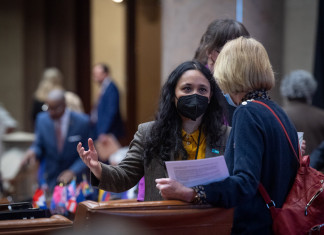“Our lives begin to end the day we become silent about things that matter.”
— Martin Luther King Jr., “I Have a Dream: Writings and Speeches That Changed the World”
“…People often forget there had been slaves in all the old colonies. Slaves were auctioned openly in the Market House of Philadelphia; in the shadow of Congregational churches in Rhode Island; in Boston taverns and warehouses; and weekly, sometimes daily, in Merchant’s Coffee House of New York. Such Northern heroes of the American Revolution as John Hancock and Benjamin Franklin bought, sold, and owned black people.”
— Douglas Harper, “Slavery in the North”
“Slave labor played a much more indispensable role in New York than in the rest of the North, and the institution emerged more strongly entrenched in the society and economy of the state after the Revolution than it had been before. Slaveholders successfully parried several attempts by lawmakers to abolish slavery in the state until 1799, when the legislature finally adopted an exceptionally conservative ‘Act for the gradual abolition of slavery’ [that] declared that all children of slaves born after July 4, 1799 were to be deemed and adjudged free but stipulated that all such children were to serve their mothers’ masters until the age of twenty-eight for males and twenty-five for females. Slaves born prior to July 4, 1799 were to remain in bondage for the remainders(sic) of their natural lives.”
— Michael E. Groth, “The African American Struggle Against Slavery in the Mid-Hudson Valley 1785 – 1827,” lecture, Oct. 30, 1993.
“First they came for the Socialists, and I did not speak out because I was not a Socialist. Then they came for the Trade Unionists, and I did not speak out because I was not a Trade Unionist. Then they came for the Jews, and I did not speak out because I was not a Jew. Then they came for me, and there was no one left to speak for me.”
— Martin Neimoller (1892-1984), a prominent German Protestant pastor and outspoken foe of Adolf Hitler who spent the last seven years of Nazi rule in concentration camps.
“In all, 51 percent of Americans now express explicit anti-black attitudes, compared with 48 percent in a similar 2008 survey. When measured by an implicit racial attitudes test, the number of Americans with anti-black sentiments jumped to 56 percent, up from 49 percent during the last presidential election. In both tests, the share of Americans expressing pro-black attitudes fell.”
— Associated Press poll, October 2012







Facebook Comments